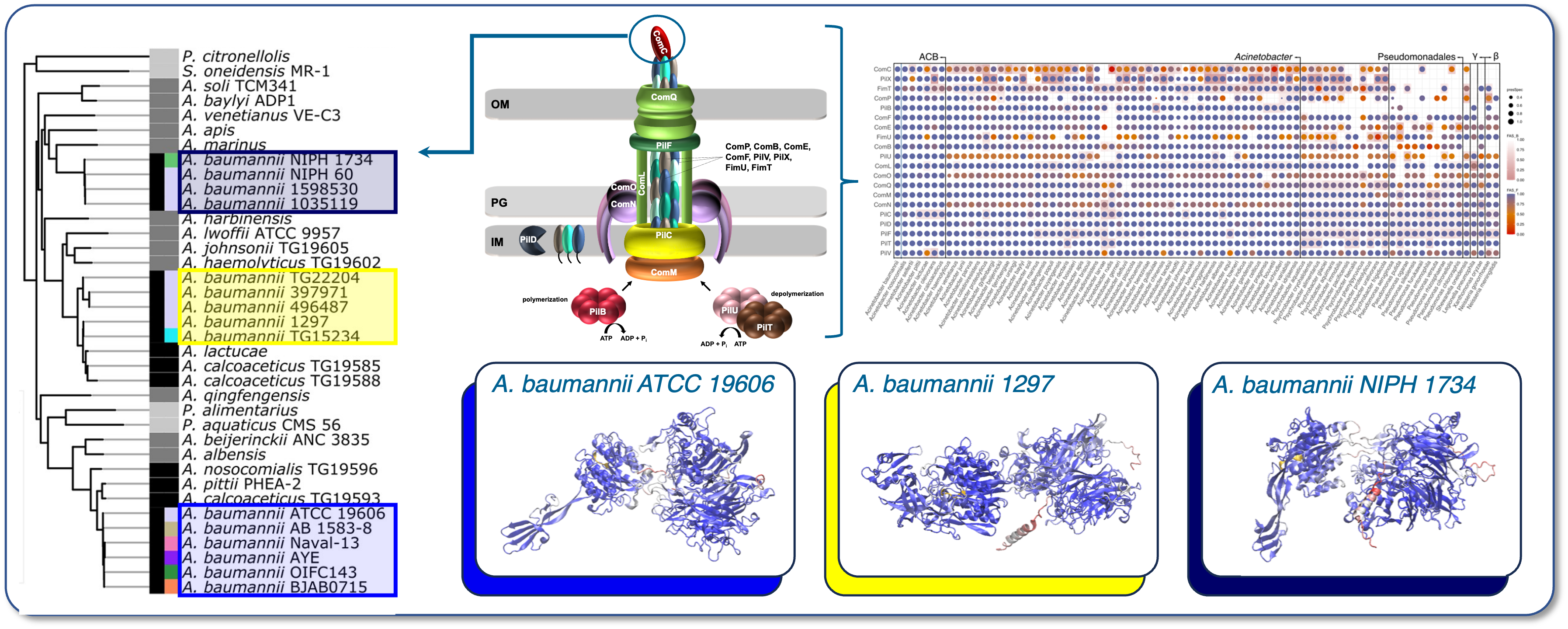The PhD candidate will study bacterial adhesins and their interactions with host receptors. The work centres on adhesins from Klebsiella and Enterobacter species, that are members of the ESKAPE pathogens notorious for their emerging multidrug resistance.
The research includes the genomic mining for potential pathogenicity factors differentiating "real world" patient infecting "colonizing strains" (with low virulence) from "killer strains" (with high virulence). These strains will be made available from the routine diagnostic laboratories of the institute. Genomes will be sequenced (using Nanopore-technology) and genome analysis will be performed in collaboration with Prof. Ebersberger. The respective genes will be genetically characterized, recombinantly expressed (e.g., in E. coli) or deleted in the respective patient isolates. Virulence will be determined in infection assays analysing bacterial binding to matrix proteins or in host-cell or invertebrate infection models. Potential binding partners will be analyzed in collaboration with the consortium with a special emphasis on integrins.
Methods will include the generation of bacterial mutants and other methods in molecular microbiology, protein expression and purification, and both cellular infection assays and adhesion assays to matrix proteins. An integral part of the work is the identification of host cell receptors using, e.g., CRISPR-Cas9 technology. For microscopic analysis, a brand-new Zeiss Apotome microscope is available allowing real-time microscopy of infection processes.
The work will be done in close collaboration with groups in the network interested in cellular models, bacterial adhesion, bioinformatics and in anti-virulence drug development. The position thus offers the opportunity of internships with both academic and industrial partners.


We are recruiting 15 fully-funded doctoral candidates for 36-month positions across our European network, with guaranteed secondments in both academic and industrial partner institutions.
We are recruiting 15 fully-funded doctoral candidates for 36-month positions across our European network, with guaranteed secondments in both academic and industrial partner institutions.